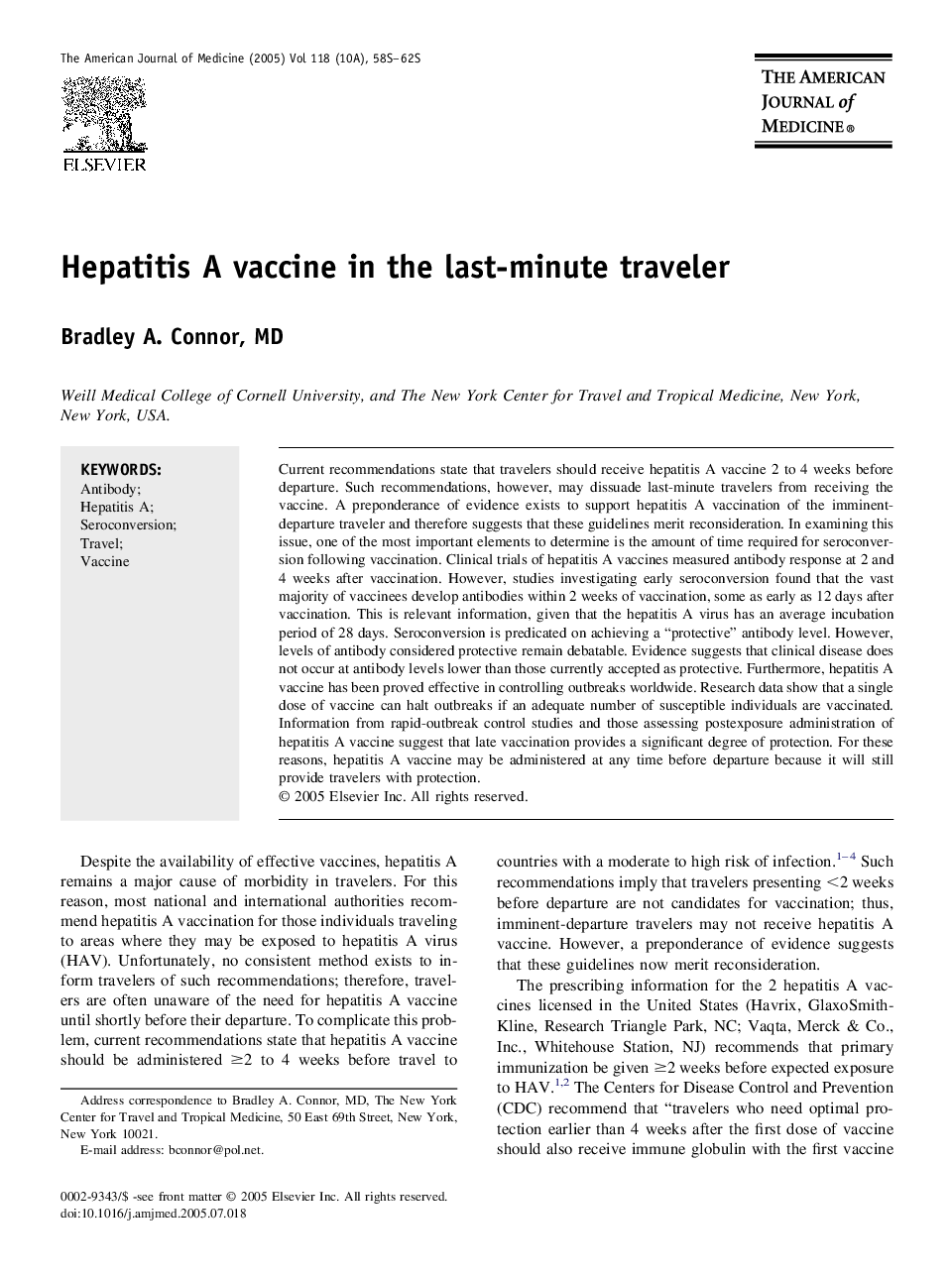| Article ID | Journal | Published Year | Pages | File Type |
|---|---|---|---|---|
| 9929328 | The American Journal of Medicine | 2005 | 5 Pages |
Abstract
Current recommendations state that travelers should receive hepatitis A vaccine 2 to 4 weeks before departure. Such recommendations, however, may dissuade last-minute travelers from receiving the vaccine. A preponderance of evidence exists to support hepatitis A vaccination of the imminent-departure traveler and therefore suggests that these guidelines merit reconsideration. In examining this issue, one of the most important elements to determine is the amount of time required for seroconversion following vaccination. Clinical trials of hepatitis A vaccines measured antibody response at 2 and 4 weeks after vaccination. However, studies investigating early seroconversion found that the vast majority of vaccinees develop antibodies within 2 weeks of vaccination, some as early as 12 days after vaccination. This is relevant information, given that the hepatitis A virus has an average incubation period of 28 days. Seroconversion is predicated on achieving a “protective” antibody level. However, levels of antibody considered protective remain debatable. Evidence suggests that clinical disease does not occur at antibody levels lower than those currently accepted as protective. Furthermore, hepatitis A vaccine has been proved effective in controlling outbreaks worldwide. Research data show that a single dose of vaccine can halt outbreaks if an adequate number of susceptible individuals are vaccinated. Information from rapid-outbreak control studies and those assessing postexposure administration of hepatitis A vaccine suggest that late vaccination provides a significant degree of protection. For these reasons, hepatitis A vaccine may be administered at any time before departure because it will still provide travelers with protection.
Related Topics
Health Sciences
Medicine and Dentistry
Medicine and Dentistry (General)
Authors
Bradley A. MD,
